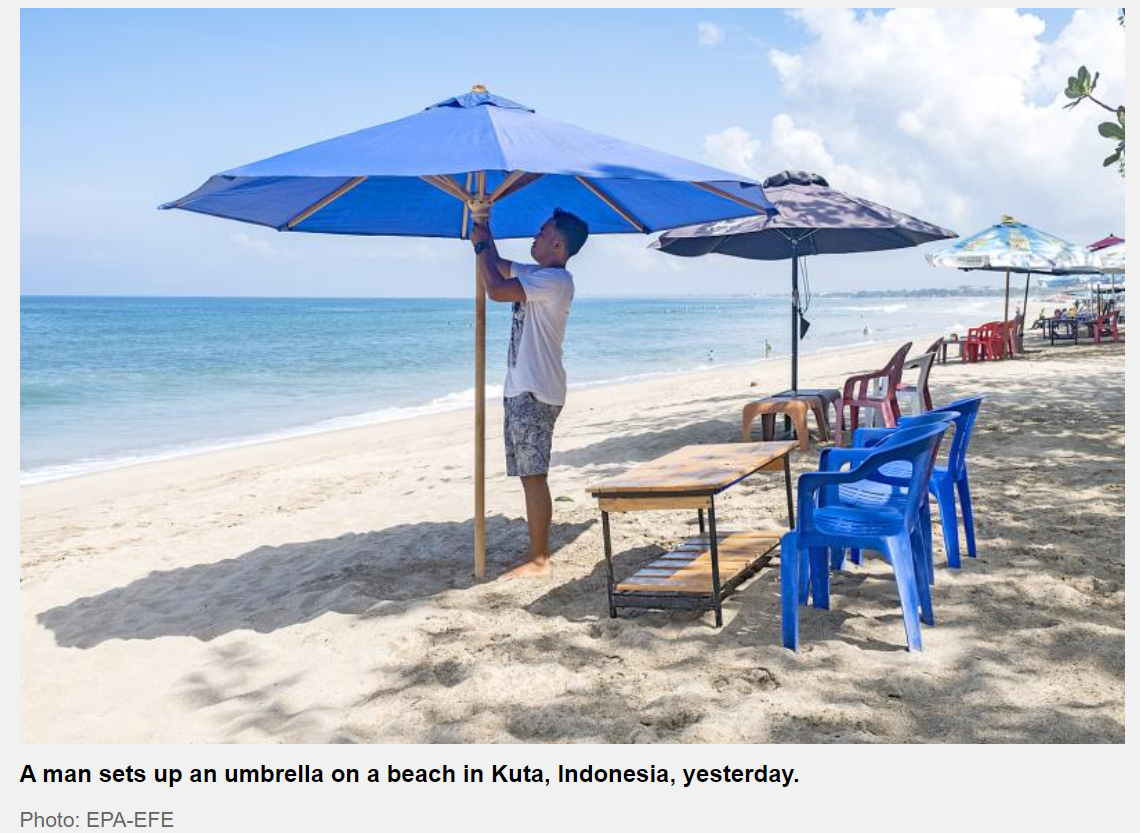Bank Indonesia keeps pro-growth policy
Indonesia’s central bank yesterday left its benchmark interest rate unchanged and extended policies to boost loan growth and consumption, seeking to bolster a recovery driven by commodity exports and border reopening.
Bank Indonesia kept the seven-day reverse repurchase rate at a record-low 3.5 percent, as predicted by all 30 analysts in a Bloomberg survey, staying on pause for an eighth straight meeting.
“The decision is consistent with the need to maintain exchange rates and financial system stability amid projected low inflation and efforts to revive economic growth,” Governor Perry Warjiyo told a briefing in Jakarta.
“Economic growth in 2022 will be better than this year,” he said.
Warjiyo announced that the central bank was easing down-payment rules for home and auto loans until the end of next year, as well as extending stimulus for credit card repayments — all steps designed to augment the effects of its accommodative monetary policy.
The rupiah yesterday strengthened 0.3 percent to 14,068 rupiah to the US dollar, although it gave up some ground after the bank’s decision.
The Jakarta Stock Exchange Composite Index was down 0.04 percent as of 3:40pm yesterday.
“Steady rates may be the optimal choice as the central bank will have to continue to navigate between competing concerns — sub-par domestic demand, rupiah vulnerability and building price pressures,” ASEAN economist Tamara Mast Henderson said. “By the second half of 2022, the pressure to lift the policy rate is likely to be acute, in our view, especially if the [US] Federal Reserve unexpectedly brings forward the start of its rate hikes.”
Southeast Asia’s biggest economy is seeing early signs of recovery from the ravages of the Delta variant of SARS-CoV-2, with rebounds seen in manufacturing and consumer confidence. Indonesia has also reopened its borders to revive tourism, allowing vaccinated foreign visitors to some destinations including Bali.
Bank Indonesia “signaled its intention to not be swept along the recent hawkish tilt of more and more central bank peers, and to continue its holding stance for a while more,” Singapore-based Oversea-Chinese Banking Corp economist Wellian Wiranto said.
“Looking into next year, we see BI [Bank Indonesia] continuing to have the space to keep its policy rate unchanged in the first half, but the risk of a stronger drumbeat for a Fed funds rate hike in the second half might get harder for it to dismiss,” Wiranto added.
Soaring commodity prices are helping Indonesia, a top exporter of coal and palm oil.
While the rupiah has become Asia’s best-performing currency in the second half of the year, gaining nearly 3 percent, it could face headwinds as the Fed gets closer to tapering its asset purchases.
Source: https://www.taipeitimes.com/News/biz/archives/2021/10/20/2003766418


 English
English




